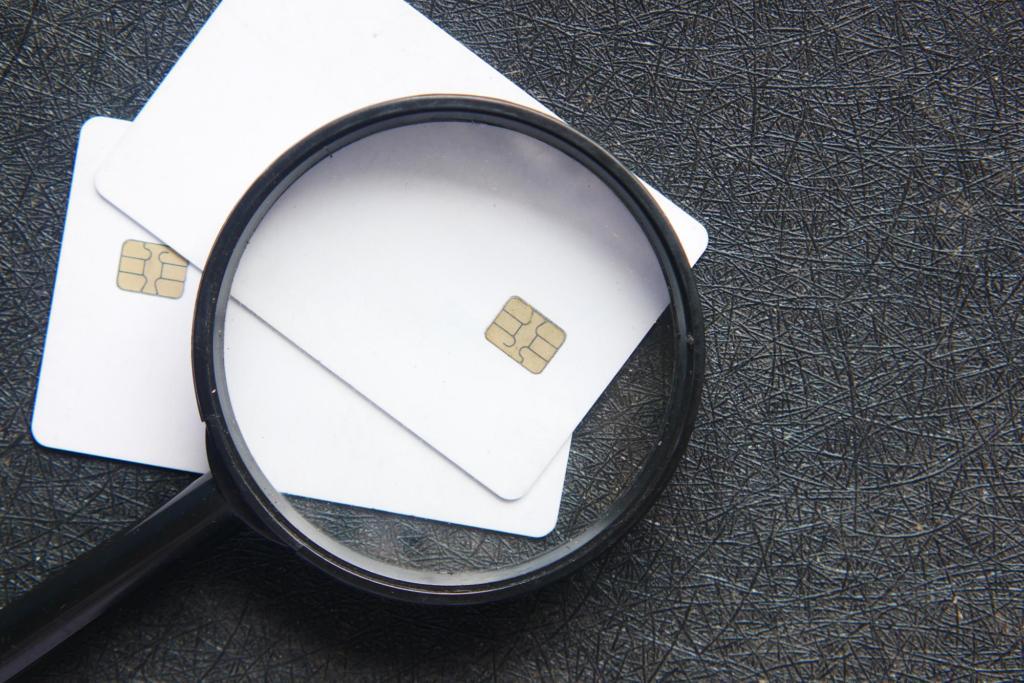Start Building Your Child’s Credit
In our rapidly evolving digital age, where personal information is shared and stored online, the specter of identity theft looms larger than ever before. Identity theft has become a pervasive threat, affecting countless individuals annually. Beyond the initial shock of discovering that your identity has been stolen, the consequences of identity theft can be profound, touching every aspect of your life. In this comprehensive guide, we’ll explain how identity theft can impact a person’s life, equipping you with the knowledge and strategies to protect yourself and your loved ones effectively.
What Is Identity Theft?
Identity theft is the unauthorized use of someone’s personal identifying information (PII), such as their name, Social Security number (SSN), credit card details, or bank account information, to commit fraud or other crimes. Identity thieves can exploit the stolen data for various illicit purposes, ranging from making unauthorized purchases and opening fraudulent accounts to obtaining medical services or even evading law enforcement.
Identity theft is a growing problem, with millions of Americans becoming victims each year. The most unsettling aspect is that identity theft knows no boundaries—it can happen to anyone, regardless of age, race, gender, or income level.
What Are the Most Common Types of Identity Theft?

Identity theft is a versatile crime, with identity criminals employing various methods to exploit personal information. The most common types of identity theft include:
| Type of ID Theft | How It Works |
| Financial identity theft | This is the most common type of identity theft, and it occurs when someone steals your personal information, such as your SSN, credit card number, or bank account, to commit financial fraud. Financial identity thieves may use your information to open new accounts, make unauthorized purchases on your accounts, or take out loans in your name |
| Medical identity theft | Medical identity theft involves the fraudulent use of your identity to access medical treatment and prescription medications or even file insurance claims. This not only poses a financial risk but can also compromise your personal health records |
| Child identity theft | This type of identity theft occurs when someone steals a child’s personal information, such as their SSN or birth certificate, to open new accounts in the child’s name or commit fraud. This can damage the child’s credit score and make it difficult for them to obtain loans and other forms of credit when they grow up. Because children’s credit profiles aren’t typically monitored, this type of theft can go unnoticed for years |
| Criminal identity theft | In cases of criminal identity theft, ID thieves use your personal information when interacting with law enforcement. This can lead to arrest warrants, criminal records, and other legal troubles that you may be wrongly associated with |
| Synthetic identity theft | This type of identity theft occurs when someone creates a new identity using both real and fake information. The combination of genuine and fabricated details renders this form of identity theft difficult to detect and prevent. These synthetic identities are used to open accounts or commit various fraudulent activities |
| Employment identity theft | Employment identity theft occurs when criminals gain employment using your identity. This can affect your tax records and employment history, as well as result in various complications associated with false employment |
How Does Identity Theft Happen?
Identity theft can happen in many different ways, but some of the most common methods include:
- Dumpster diving—Identity thieves may go through your trash to steal personal information like bank statements, credit card bills, and pre-approved credit card offers
- Phishing scams—Phishing scams involve deceptive emails or fake websites that mimic trusted organizations. Identity thieves may send you fraudulent emails or text messages that appear to be from a legitimate source, such as a bank or credit card company. The emails or text messages may ask you to provide your personal information, such as your SSN or credit card number. The fake websites can also trick you into entering your personal information unknowingly
- Malware—Identity thieves may install malware on your computer or mobile device to steal your personal information, such as your passwords and credit card numbers
- Skimming devices—Criminals may install skimming devices on ATMs, credit card terminals, and gas pumps. Skimming devices can steal your credit card information when you use your card
- Data breaches—Identity thieves may steal personal information from businesses and organizations that have been hacked. This type of identity theft is becoming increasingly common, with businesses and organizations collecting more and more personal information from their customers
- Social engineering—Social engineering involves using manipulative tactics to convince individuals to divulge personal information. This can include a criminal posing as a trusted authority, such as a bank representative or government official, to trick you into sharing sensitive data
- Lost or stolen devices—Smartphones, laptops, or other electronic devices that may contain a wealth of personal information can pose a significant risk if misplaced or stolen. This information can be easily exploited by criminals who come into possession of the device
How Can Identity Theft Impact Your Life?
Identity theft is a critical issue with far-reaching consequences for individuals, businesses, and society as a whole. Here are some key reasons why identity theft is a serious problem that can impact all aspects of your life:
- Financial losses
- Emotional distress
- Reputation damage
- Impact on families
Financial Losses
Identity criminals who gain access to your personal information can exploit it to make unauthorized transactions, drain your bank accounts, or fraudulently apply for loans and credit cards in your name. The financial losses incurred in the process can be substantial. Unauthorized financial activities can also damage your credit score, affecting your ability to secure loans, mortgages, or credit cards in the future. In the worst cases, victims may even find themselves facing legal consequences, as they’re wrongly implicated in financial crimes committed by the identity thief.
Emotional Distress
The emotional toll of identity theft is significant—victims often experience heightened levels of stress and anxiety as they grapple with the aftermath of the theft. The sense of violation that comes with knowing that someone has misused your most private details can be unsettling and lead to persistent emotional distress.
Identity theft can also erode your trust in individuals and institutions, making it difficult to feel secure.
Reputation Damage
Identity theft can significantly harm your reputation, as fraudulent activity can lead to false associations with criminal actions. This damage can extend to both your personal and professional reputation, affecting your standing in the community and the workplace. The stigma attached to identity theft can impact your social relationships, job prospects, and overall quality of life.
Impact on Families
The far-reaching consequences of identity theft can extend to your family members. The emotional toll of the crime, including stress, anxiety, and fear, often affects those close to you because they share in your distress. Additionally, the financial losses resulting from identity theft can impact your family, as they may be called upon to help navigate the financial challenges associated with the theft.
Steps To Take if You’ve Fallen Victim to Identity Theft
Discovering that you’re a victim of identity theft can be distressing, but taking swift and targeted action is essential to minimize the damage and reclaim your identity. Here’s a step-by-step guide on what to do if you’re a victim of identity theft:
- Contact law enforcement—Report the identity theft to your local law enforcement agency. Filing a police report is crucial for establishing a legal record of the crime
- Notify credit bureaus—Contact the three major consumer credit bureaus to place a fraud alert on your credit reports. This will make it more difficult for identity thieves to open new accounts in your name
- Reach out to the Federal Trade Commission (FTC)—Report the incident to the FTC through its website or by phone. The FTC provides resources to address identity theft and guidance on what steps to take
- Monitor your credit—Obtain free credit reports from each of the credit bureaus and carefully review them for any unauthorized accounts or transactions. Report any discrepancies to the credit bureaus
- Alert your financial institutions—Notify your bank, credit card companies, and other financial institutions of the identity theft incident. They can assist in securing your accounts and preventing further fraudulent transactions
- Change passwords—Change the passwords and PINs for all your online accounts, including email, social media, and financial accounts. Use strong, unique passwords for each account
- Seek legal advice—Consult an attorney, particularly if the identity theft has resulted in significant financial losses or legal complications
- Invest in identity theft protection service—Consider enrolling in an identity theft protection service that can provide ongoing monitoring and assistance in case of future threats
Recovering from identity theft can be a lengthy process, so be patient and persistent as you work through the steps to reclaim your identity and financial well-being. Remember that early detection and swift action are key to minimizing the damage from identity theft.
How To Protect Your Family From the Consequences of Identity Theft

In addition to responding promptly in the event of identity theft, it’s equally essential to maintain a proactive stance and implement preventative measures to shield your family from the threat of identity fraud. This is especially critical when it comes to safeguarding children, as they’re the most vulnerable demographic. Here are some tips to help safeguard your family from identity theft:
- Educate your children about online safety
- Secure personal information
- Use strong passwords
- Monitor credit reports
Educate Your Children About Online Safety
Given the alarming statistic that a child’s identity is stolen every 30 seconds, it’s imperative to educate your children about online safety in this digital age. To achieve this, follow these strategies:
- Start by explaining the significance of online privacy. Emphasize the importance of not sharing personal information like full names, addresses, and phone numbers with strangers online
- Teach them about the potential risks associated with social media and oversharing personal details, such as data theft
- Encourage them to use privacy settings to control who can see their content and educate them on recognizing cyberbullying
- Make sure they understand the dangers of meeting strangers they’ve only interacted with online and the importance of safeguarding their passwords
Secure Personal Information
Securing personal information is a fundamental aspect of preventing identity theft. To do this effectively, keep essential documents like passports, birth certificates, and Social Security cards in a secure location, such as a fireproof safe or a bank safety deposit box. Encourage family members to carry only necessary documents and cards to minimize potential losses if these items are ever stolen. Consider digitizing important documents and encrypting them with a strong password to ensure that sensitive information is protected.
Use Strong Passwords
Creating strong passwords is a cornerstone of online security, both for yourself and your children. Strong passwords should include a mix of upper and lowercase letters, numbers, and special characters. For extra safety, avoid using easily guessable information like birthdays or names and opt for unique, non-dictionary words whenever possible. If you have trouble keeping track of all your passwords, try using a password manager—a tool that can help generate and securely store complex passwords for various accounts.
Monitor Credit Reports
One of the most critical steps in protecting yourself against identity theft is to regularly monitor your credit. Start by obtaining your credit reports from each of the three major credit bureaus:
You’re entitled to a free annual credit report from each bureau through AnnualCreditReport.com. When reviewing your credit reports, be vigilant for any signs of suspicious activity. Look for discrepancies, inaccuracies, or unfamiliar accounts—pay special attention to inquiries and accounts you don’t recognize, as these could indicate fraudulent activity.
Even though it might feel early, check if your child has a credit report, too. Your child shouldn’t have a credit history (due to the restrictions imposed by the CARD Act of 2009), so any credit activity under their name could be a sign of child identity theft. Detecting such anomalies early is vital for damage control.
To make the process of checking your credit easier, consider using a credit monitoring service like FreeKick. To ensure proactive data safety, FreeKick offers the advantage of real-time monitoring, providing you with alerts and notifications as soon as changes are detected in your credit profile.
Never Fall Victim to Identity Theft With FreeKick
With a child’s identity being stolen every 30 seconds, this crime is more common than you might think—and it’s important to take every precaution you can. That’s where FreeKick by Austin Capital Bank comes in—it’s a two-in-one platform that protects your family’s identities and helps build credit for your children.
How FreeKick Protects Identity
FreeKick offers multiple identity protection features for both adults and minors. For you and your adult children, FreeKick offers the following services:
- Credit profile monitoring
- SSN monitoring
- Dark web monitoring for personal information
- Up to $1 million identity theft insurance
- Full-service white-glove concierge credit restoration
- Lost wallet protection
- Court records monitoring
- Change of address monitoring
- Non-credit (Payday) loan monitoring
- Free FICO® Score monthly
- FICO® Score factors
- Experian credit report monthly
For minor children, FreeKick offers:
- Credit profile monitoring
- Social Security number (SSN) monitoring
- Dark web monitoring for children’s personal information
- Up to $1 million identity theft insurance
- Full-service white-glove concierge credit restoration
- Sex offender monitoring—based on sponsor parent’s address
How FreeKick Builds Credit
Once you’ve secured your family’s identities, it’s time to think about their financial future.
With FreeKick’s credit building service, which is available for children aged 13 to 25, you can give your child up to five years of credit history once they turn 18. This will help them save $200,000 during their lifetimes by giving them access to more favorable loan terms and other financial perks.
You have to take three steps:
- Create an Account—Go to FreeKick.bank, sign up for an account, and choose a deposit amount you’re comfortable with
- Set It and Forget It—FreeKick will automatically start building 12 months’ worth of credit history for your children
- Keep Growing—After 12 months, you can close the account without any fees or continue building credit for your family for another year
FreeKick Pricing
FreeKick offers flexible pricing. There are two plans you can choose from:
| FDIC-Insured Deposit | Annual Fee |
| $3,000 | $0 (Free) |
| No deposit | $149 |
Each plan offers:
- Credit building for six children aged 13 to 25
- Identity protection for two parents and six children aged 0 to 25
Protect your family from identity theft and financial hardship—sign up for FreeKick today.

Freekick provides a double dose of financial empowerment and security for your whole family. It helps teens and young adults build strong credit profiles and offers identity motoring for up to two adult parents and six children under 25.





